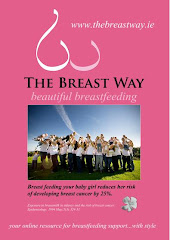Last week, DS Dublin held a talk about the typical and common health issues in children and adults with down syndrome. It was such an informative and interesting talk, I've decided to transcribe the notes we were given, and try to add in what I remember. So I'm afraid this might not be too interesting to some, but to others, I hope it helps.
The talk was given by Joan Murphy who is a clinical nurse specialist in Tallaght Hospital. She works closely with Down Syndrome Ireland and she is available to all parents who have children with down syndrome, by email, phone and through the hospital. You don't need to be her patient, just give her a call and she'll answer any question. And if she dosen't pick up, then try again or leave a message. I'll include her contact details at the end.
The major treatable health problems are heart, growth, thyroid, hearing, vision and development & learning abilities/ gaps. Early identification and intervention are essential.
Family centred care is very important. The well being and rights of the child are priority. Parents are the key to the child's health and well being. Parents are the experts for their child. In other words, if you have a gut feeling that something is just not right, get it checked out. If you are not happy with your doctors explainations, give Joan a call!
A key resource in health matters is a book called "Medical Management of Children & Adolescents with Down Syndrome in Ireland". It is a medical guideline for the profesionals, but it's no harm to know where to get it and the checkup table on page 19 is in my opinion essential to have.
Growth should be charted on a down syndrome growth chart. As long as your child is following their curve, then all is fine. If they start to drop significantly or jump, then contact Joan or your consultant. Another great book for feeding in young children is "Supporting Feeding and Oral Development in Young Children". I have found this to be a great resource, and I dip in to it from time to time. Joan also recomended "The Down Syndrome Nutrition Handbook".
45.7% of babies born with down syndrome have Heart Problems.
20% of those are innocent murmurs
25% have an Atrioventricular Septal Defect
17% have an Atrial Septal Defect
15% have a Ventricular Septal Defect
11% have a Patent Ductus Areriosis
7% have an ASD VSD
2% have a PDA VSD
3% have a Pulmonary Hypertension
Check out Heart Children Ireland for explainations on these and support.
Thyroid screening is very important and should be carried out on an on going basis (at least once a year). A blood smple can be taken from just a finger prick. Underactive thyroid is the most common problem and it's side affects are tirdness, lethargy, over weight. About 4% of thyoid problems are caused by an over active thyroid and side affects are sweating and other things I can't remember......(sorry!). The improtant thing is too look out for changes in your childs energy levels, seemingly going backwards in terms of speech for example, check their growth chart, and then get it checked out.
Hearing screening is also very improtant. It can be done in three stages. The first is an otoscopy to test the external ear and the tympanic membrane. The second is a tympanometry to test the middle ear (eardrum and ossicle mobility). And the third is a DPOAE and measures cochlear function. Now, all this is absolute gobbledy goup to me, but basicly, there is a fourth test, the big brain wave one that does the job of the other three, which for the life of me I can't remember the name of. I would suggest you get that one for a little baby, but it's good to know that each section can be test seperatly. For more information on hearing loss and problems, check out the NDCS and "Down's Syndrome and Childhood Deafness".
50% of children will require glasses for their vision. Now hang on....I'd say 50% of the general popuation need glasses, and Cathal is going to get his shockingly bad eyesight from me anyway! Back to the point. Early detection in short & long sightedness, strabismus, cataract and glaucoma will prevent an unnecessary secondary handicap. So it's important to be on the look out for lazy eyes, squiting and anything that just dosen't look right.
I am going to take a break here, and continue this in a few days time! Stay tuned for more...
Joan Murphy
Clinical/ Research Nurse Specialist
Department of Paediatrics/ TCD
Phone: 01 8963785/ 4142000/ bleep 7193
About Me - workshops and online training.
6 years ago





3 comments:
Thanks so much for this - we missed the talk as we were in Donegal. Well done on the notes you've done great.
I love reading your blog - my little man Declan is 10 months and this week has started saying his constanent sounds baba, mmmm, ddddd- I'm really excited and want to should bababa from the rooftops!!!
Colette
Excellent post, Cathal's Mam. When I next post I will be sure to link to it. We missed the meeting - totally unaware of it in fact - but thanks to this we'll still get the essentials. Thanks for taking the time and making the effort.
God bless
excellent post, many thanks for taking the time to post this information
Post a Comment